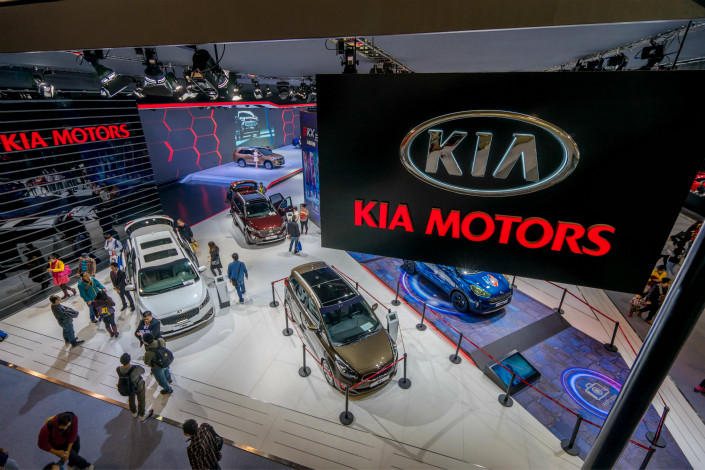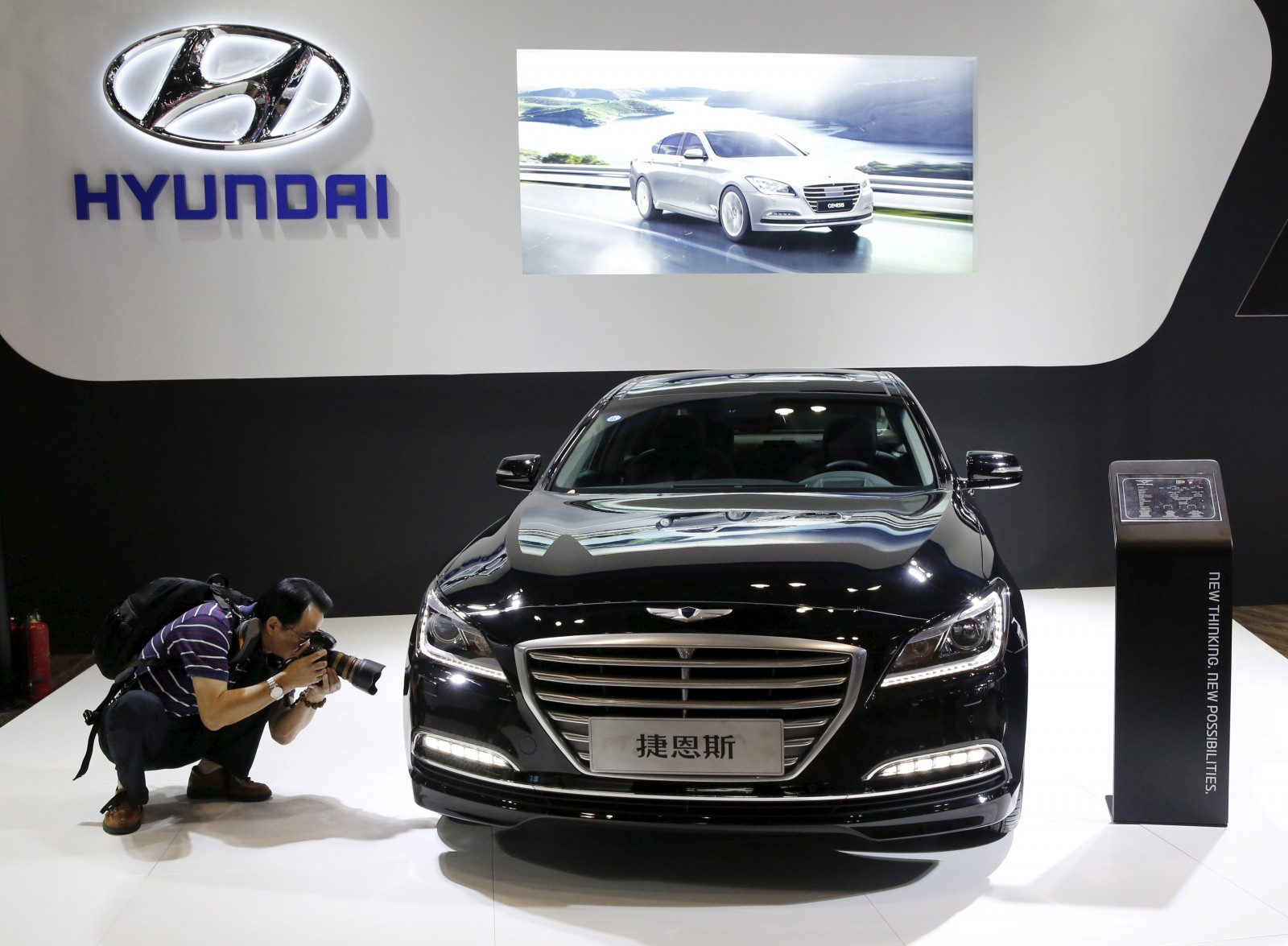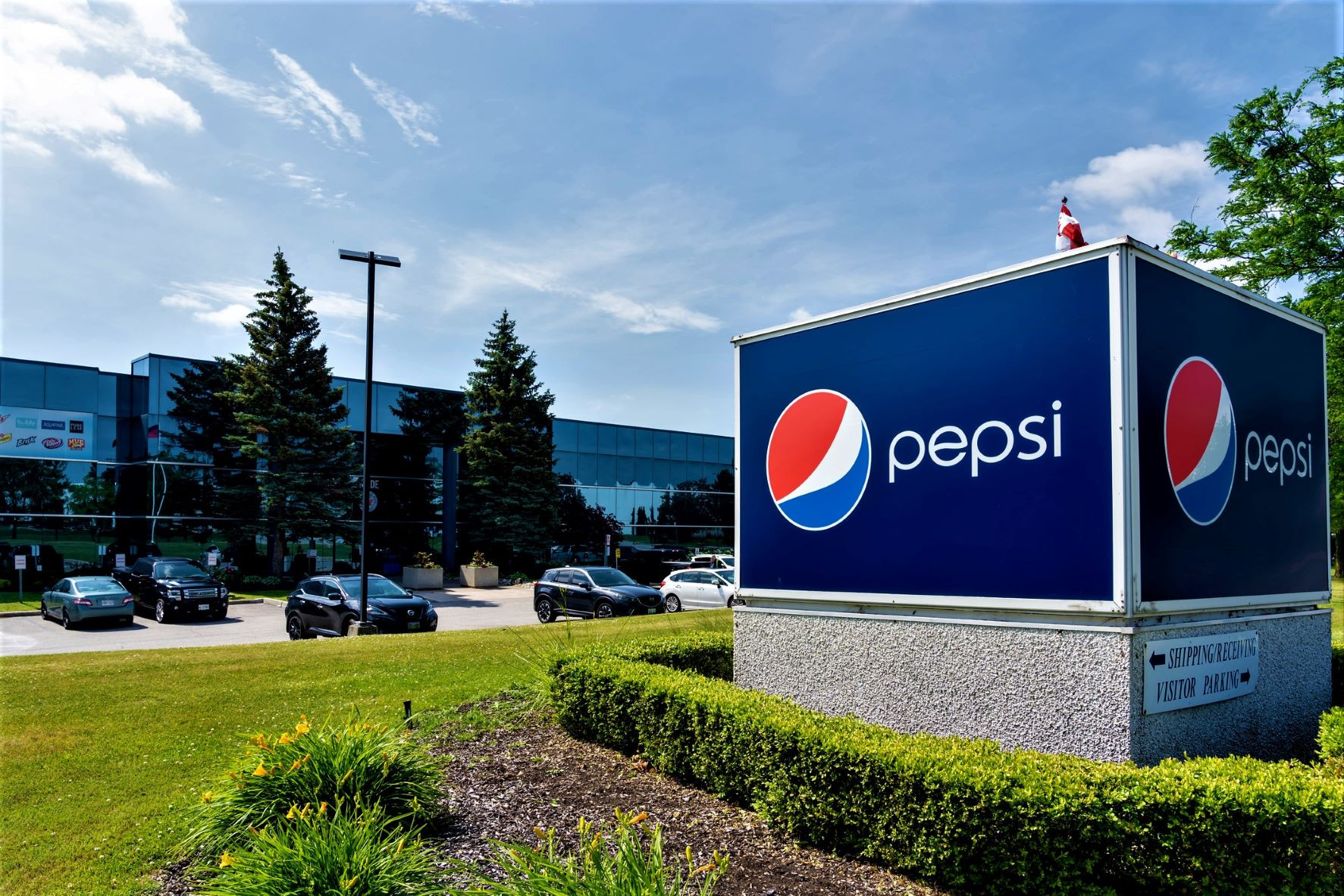South Korean Auto Sales Dip: Hyundai, Kia, and GM Korea Face Challenges Amid Global Market Shifts
South Korea's automotive industry saw a modest decline in domestic sales during July 2024, with the five main automakers reporting a combined 2% drop compared to the previous year. This follows a trend of steeper drops in previous months, reflecting a sluggish domestic economy and consumer hesitancy driven by interest rate hikes.
While the overall market decline eased in July, the seven-month cumulative sales figures paint a more concerning picture, showing an 11% drop compared to the same period last year. All five local manufacturers reported lower year-to-date (YTD) sales, with Hyundai Motor experiencing a 12% decline, Kia a 5% dip, and GM Korea facing a substantial 32% drop. KG Mobility, formerly known as Ssangyong Motor, saw the most significant decline with a 34% drop in sales, while Renault Korea recorded a 10% decrease.
Hyundai Motor's Global Sales Decline Amid Production Challenges
Hyundai Motor, South Korea's top automaker, experienced a 1% drop in global sales during July, reflecting slower domestic and overseas sales. Despite introducing new models like the Casper/Inster A-segment BEV and the upcoming Ioniq 7 BEV, the company faced challenges meeting demand and responding to regional market fluctuations. Despite facing these challenges, Hyundai Motor remains committed to increasing its global market share through the introduction of more BEVs and hybrids, and boosting profitability by strengthening its product mix with more SUVs and premium models.
Kia's Global Sales Remain Resilient Despite Domestic Challenges
Kia, South Korea's second-largest automaker, managed to report a slight increase in global sales during July, with a modest rise in overseas sales offsetting slower domestic volume. Kia's best-selling models last month included the Sportage SUV, followed by the Seltos and Sorento. Despite this success, the company's YTD sales were down by 1%. Kia's medium-term plan aims to sell 4.3 million vehicles annually by 2030, with a focus on increasing BEV production.
GM Korea's Sales Plunge Due to Production Delays and Wage Negotiations
GM Korea faced a significant 45% drop in global sales during July, with production impacted by industrial action following breakdowns in wage negotiations. This decline resulted in a 47% drop in local sales and a 44% plunge in exports. Despite these challenges, GM Korea remains optimistic about the future, aiming to make up for lost production in the second half of the year and reach a wage settlement with plant workers. The company also aims to increase its global sales target to 529,200 vehicles this year.
KG Mobility's Sales Decline Amidst Market Competition
KG Mobility, formerly known as Ssangyong Motor, experienced a 23% drop in global sales during July, with a particularly steep decline in overseas sales. Despite the launch of a new minivan version of the Torres EVX SUV powered by LFP batteries, the company faces intense competition from other domestic manufacturers and importers. KG Mobility also plans to explore new markets in Latin America to bolster global sales.
Renault Korea's Sales Rebound Driven by Export Growth
Renault Korea saw a significant 13% increase in global sales during July, driven by a rebound in exports. This follows sharp declines earlier in the year. Despite this rebound, the company's total sales in the first half of the year were still down by 32%. Renault Korea's focus on SUVs, BEVs, and hybrid vehicles, including the new Geely-based Grand Koleos hybrid SUV, will likely drive future growth.
The Future of South Korea's Automotive Industry
The South Korean automotive industry faces significant challenges in the coming years. While the country's automakers continue to innovate and introduce new BEV and hybrid models, they must navigate a complex global landscape marked by economic uncertainty, changing consumer preferences, and intense competition. The industry's future success will depend on its ability to adapt to these challenges and capitalize on new opportunities.
Key Takeaways
- South Korea's automotive industry faces headwinds as domestic sales decline and global market shifts continue to impact production and sales.
- Hyundai Motor, Kia, and GM Korea are experiencing varying degrees of challenges, with production delays, wage negotiations, and competition impacting their sales.
- The introduction of new BEVs and hybrid models is crucial for the industry's future success, but challenges remain in navigating a changing global automotive landscape.
The South Korean automotive industry remains a key player in the global market, and its ability to adapt to changing market conditions will be crucial for future success. With continued innovation and strategic planning, the industry is well-positioned to overcome these challenges and thrive in the years to come.



















